Auto industry acts globally—except on recalls
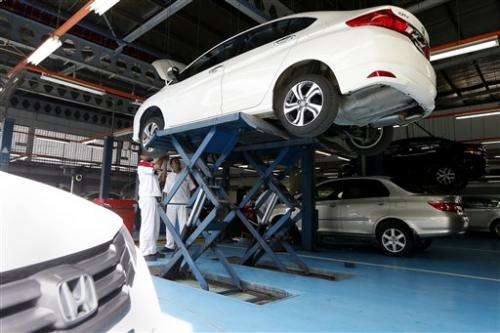
When it comes to making and selling cars, the auto industry thinks and acts globally: There is near-seamless coordination between parts suppliers, factories and dealerships.
But when an unsafe car needs to be recalled, that global coordination breaks down—in part because governments do not demand it. The consequences are sometimes deadly.
There are no international standards for determining what's unsafe and should be recalled, or how car owners should be notified. Some countries have strict safety regulations and a clear process that automakers must follow when they learn about a defect. But many do not.
"We've witnessed recalls occurring in one part of the world while the same defects go unremedied in others, sometimes for years," said Sean Kane, a safety advocate and president of Safety Research and Strategies. "That should not happen."
Six years ago, Honda began recalling driver's side air bags in the U.S. The air bags, made by Japanese supplier Takata Corp. at a now-shuttered plant in Georgia, can inflate with too much force, spewing shrapnel into the vehicle. But it wasn't until November of this year—after the death of a driver in Malaysia—that Honda recalled driver's side air bags in small cars sold in Europe and Asia, even though the air bags were made at the same time in the same Georgia factory.
Governments are the safety watchdogs, but regulations vary widely and there's little cooperation between nations. Automakers, for the most part, get to decide when and where their cars will be fixed. Some auto executives say they would support global safety standards—but are also aware they save money by limiting recalls to certain regions or skimping on safety features in countries that don't require them.
Safety advocates say governments need to keep better track of potential problems and alert drivers to them more quickly. They're hoping new technology that allows direct communications with the cars themselves can help bridge the gaps.
CARS ARE GLOBAL
Automakers used to design cars regionally. Cars in Europe shared few parts with those in the U.S., so when a vehicle needed repairs, the recall rarely spread past international borders.
That's no longer the case. A car like the Ford Focus is designed to be sold everywhere, with only minor tweaks to satisfy local tastes and regulations. It's made in nine different factories around the world.
Car parts are global as well. Almost all the major automakers use air bags from Takata, which has 56 plants in 20 countries. The Japanese company makes around 22 percent of the world's air bags, according to Valient Automotive Market Research.
The approach saves money, but some experts question whether companies compromised safety in the rush to go global. Auto analyst and engineer Tadashi Tateuchi says he believes Takata and Honda, Takata's biggest customer, were overly focused on globalization and boosting sales and allowed safety issues to fall through the cracks.
Honda responds that the air bags sold in the U.S. were different, and more advanced, than those involved in the Malaysia crash. Even though they both ruptured, determining the underlying cause took time.
"The ability to make timely recall decisions therefore cannot and should not be viewed as a simple process," Honda spokesman Chris Martin said.
THE SAFETY GAMUT
Despite decades of talk, at the United Nations and elsewhere, little progress has been made getting governments to harmonize safety standards.
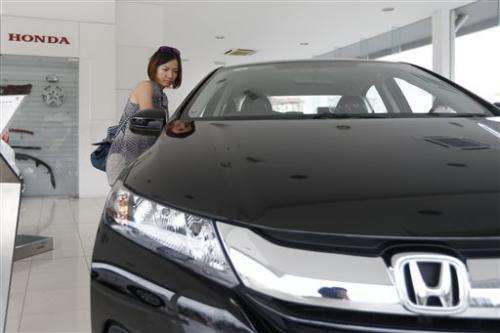
Safety runs the gamut. In Europe and Japan, cars are rigorously tested before they go on sale. In the U.S., automakers self-certify and cars are tested only after they go on sale. In Mexico and India, cars don't have to meet any government safety standards at all.
Likewise, countries differ on how to treat a problem. The U.S. requires automakers to report a safety defect within five days of its discovery, even if the cause hasn't been determined. Other countries, like Colombia, want automakers to have a fix in place before they report a recall, so customers know what will be done. The U.S. requires automakers to report recalls that originate in other countries, but it doesn't inform other governments when it orders a recall here.
John Krafcik, the president of auto buying site TrueCar.com and Hyundai's former U.S. chief, says there's also discrepancy in what's considered a safety defect. In the litigious U.S., automakers are more prone to repair minor problems.
In July, for example, Ford recalled 368 Transit Connect commercial vans in Puerto Rico because they had European labels with pictures on the gas caps. U.S. regulations require English words, not pictures. So Ford had to swap out the labels.
The modes of notifying owners also vary. In the U.S., automakers must contact owners by mail every three months; in Brazil, they have to buy radio and newspaper ads to announce recalls. China leaves it to dealers to contact owners. Most countries don't have systems set up to track vehicle identification numbers, so it's hard to find cars that have been sold multiple times.
The lack of a cohesive system contributes to huge disparities. In 2013, there were 714 vehicle recalls issued in the U.S., where 28 million cars, trucks and motorcycles were called back due to safety issues. That outpaced the rest of the world. In Europe, which has around the same number of cars on the road as the U.S., there were 110 recalls. In Japan there were 303. China had 130, Brazil had 74. India had no numbers available.
WHAT AUTOMAKERS WANT
Some auto executives say global standards would allow them to work from one playbook when designing cars. Fiat Chrysler CEO Sergio Marchionne has often complained that the U.S. and Europe have different rules for the direction of the beams from their headlights, for example. The U.S., Europe and Japan have three separate sets of safety rules; most countries adopt one of those—or a combination of them—when establishing their own regulations.
"There's no reason why there should be three different global guidelines on what makes a safe car," Krafcik said.
Global standards might also ease the recall process, since cars would have less variation between markets. Air bags in Malaysia, for example, would automatically be the same as those in the U.S.
But low or nonexistent standards also save money for automakers and car buyers. Nissan didn't even include air bags in the $5,000 Datsun Go it now sells in India and South Africa.
"We are starting with a world that is uneven in the distribution of safety," says Adrian Lund, the president of the Insurance Institute for Highway Safety, an insurance-funded group that crash tests U.S. cars. "There are companies that are questioning whether they should have to put all this safety equipment on vehicles."
Nissan says the Go meets local safety standards and has other features like better brakes to help drivers avoid accidents.
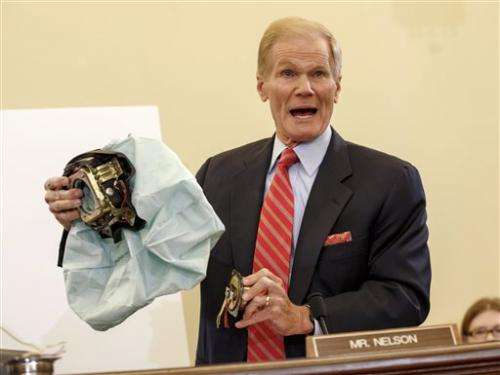
Automakers can also save money—hundreds of millions of dollars, in some cases—by dragging their feet on recalls or limiting them to one region.
Ten years ago, the U.S. government fined Toyota $16 million for delaying a recall of 4Runner SUVs with defective steering rods in the U.S. That defect was linked to three fatal crashes here.
This summer, two years after a recall in Europe, General Motors finally recalled the Aveo in the U.S. because corrosion was wearing down the brakes. Meanwhile, in Europe and Brazil, people are still driving Ford SUVs with 1.6-liter EcoBoost engines that were recalled in the U.S. two years ago because of a fire risk. Ford says it hasn't acted abroad because no fires have been reported in other regions.
WHAT MIGHT WORK
General Motors, whose mishandled recall of defective ignition switches is now blamed for at least 40 deaths in the U.S., says it has spent much of the last year improving its methods for anticipating safety problems.
GM President Dan Ammann says an entire floor of the company's headquarters is now devoted to sifting through social media, complaints, dealer comments and other channels to spot potential safety problems. When GM finds a problem, he says, the company quickly scans the globe to see what other cars are affected.

"We've gone out and found issues very early and acted on those issues right away rather than seeing how it evolves," Ammann said.
Krafcik says the job of alerting owners to recalls will get easier within a few years, as connected cars let automakers send recall notifications directly to the dashboard. Tesla Motors is already fixing problems by beaming software updates directly into cars, while GM's OnStar system sends a message to the dashboard if there's a recall.
"Every car is going to be a transmitting node, for traffic management and safety," he says. "You will press a button to arrange a service appointment."
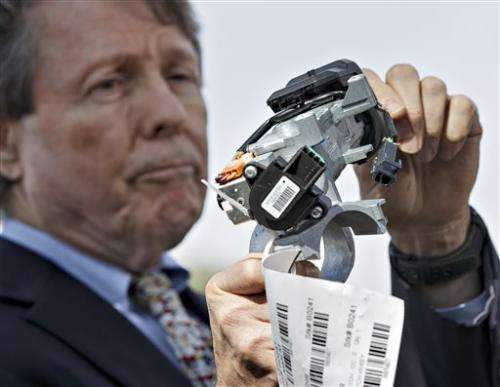
But it could take decades for that sort of technology to migrate all over the world.
In the meantime, Lund says, getting local people involved in their own safety—instead of imposing global standards—might be the best route. He is a trustee with the Global New Car Assessment Program, a nonprofit that sets up independent crash-test facilities and publicizes the results. The group has established vehicle testing programs in Southeast Asia and Latin America over the past four years, and it's working on a program for India.
"What you want it for everyone to be educated about safety, and learn that people are being injured and killed and don't need to be," Lund said.
-
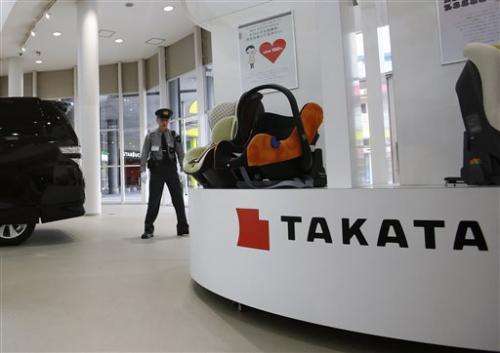
In this Nov. 6, 2014 file photo, a security guard stands by child seats, manufactured and displayed by Takata Corp. at an automaker's showroom in Tokyo. Honda began recalling Takata driver's side air bags in the U.S. because they could inflate with too much force and spew shrapnel into the vehicle. But it wasn't until last month after a crash in Malaysia that killed a woman and her unborn child that Honda recalled driver's side air bags in small cars from Asia and Europe. (AP Photo/Shizuo Kambayashi, File) -
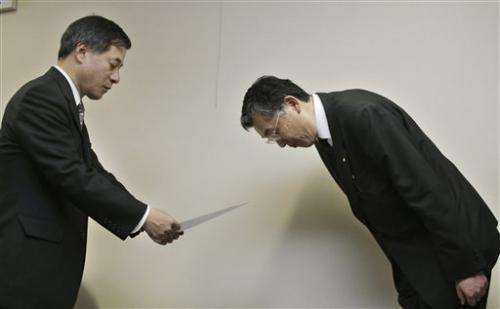
In this Feb. 9, 2010, file photo, Toyota Motor Corp. Managing Officer Hiroyuki Yokoyama, right, bows after submitting the company's formal recall notice for its 2010 Prius gas-electric hybrid and two other hybrid models to Ryuji Masuno, director general of the Road Transport Bureau of the Transport Ministry, at the ministry in Tokyo. Toyota recalled nearly 200,000 of its signature Prius green cars in Japan for braking problems. (AP Photo/Koji Sasahara, File)
© 2014 The Associated Press. All rights reserved.


















